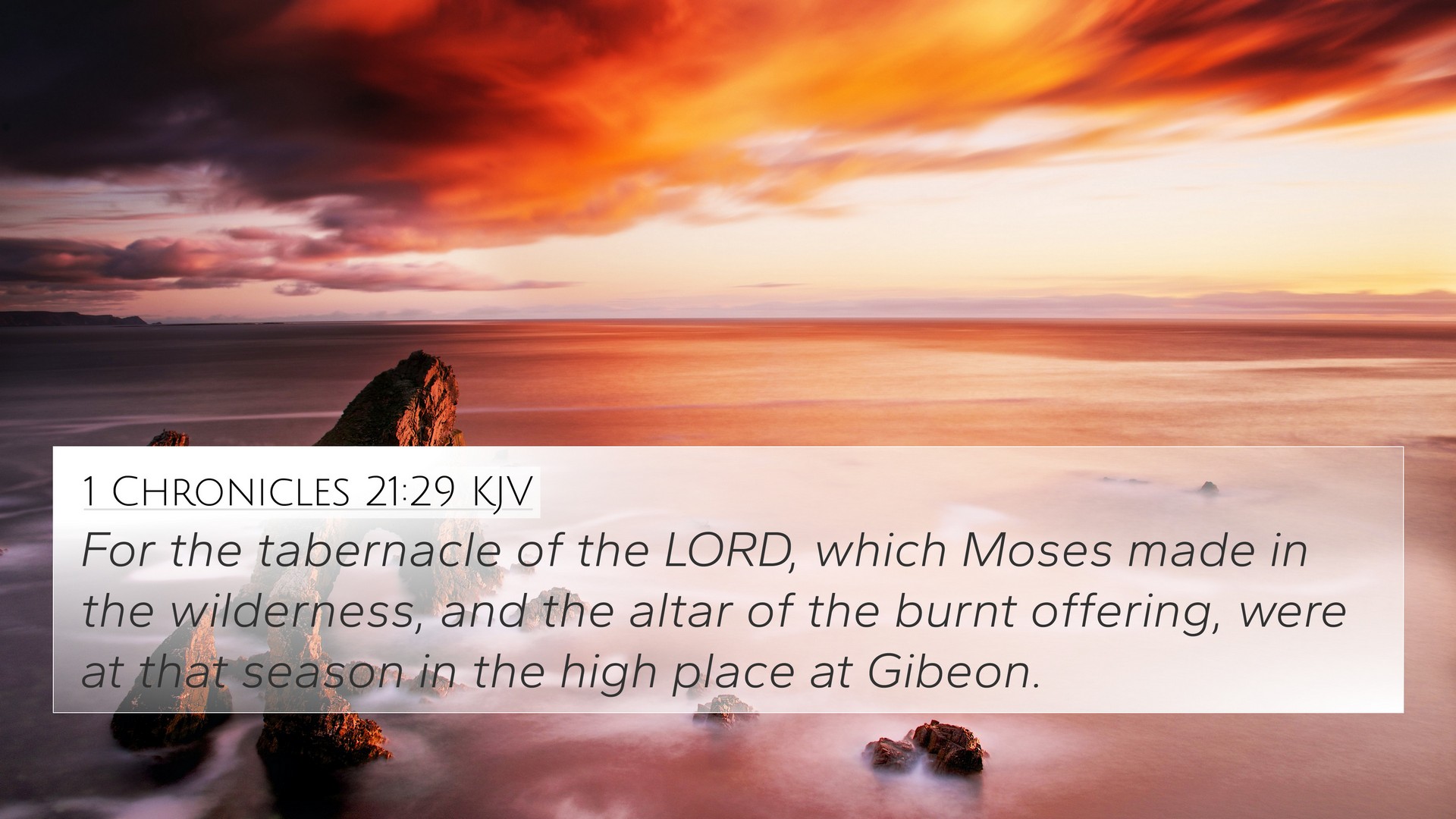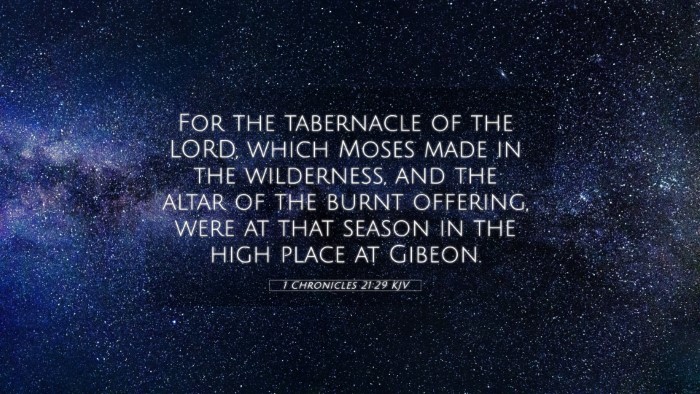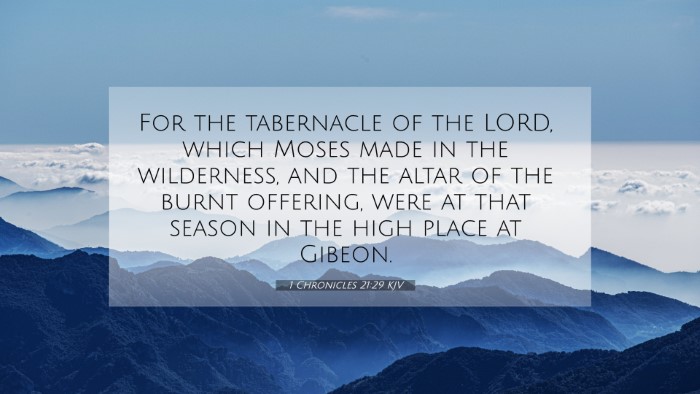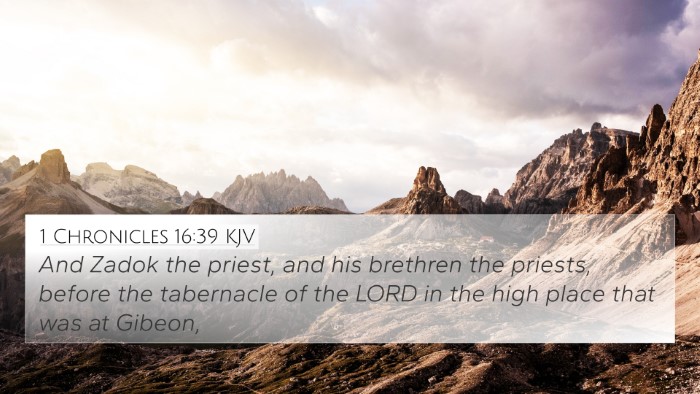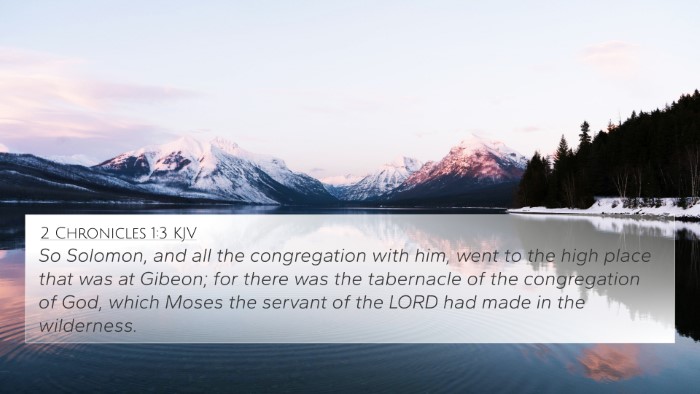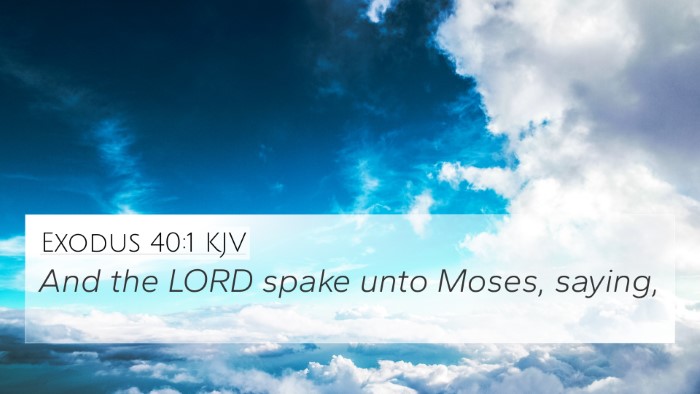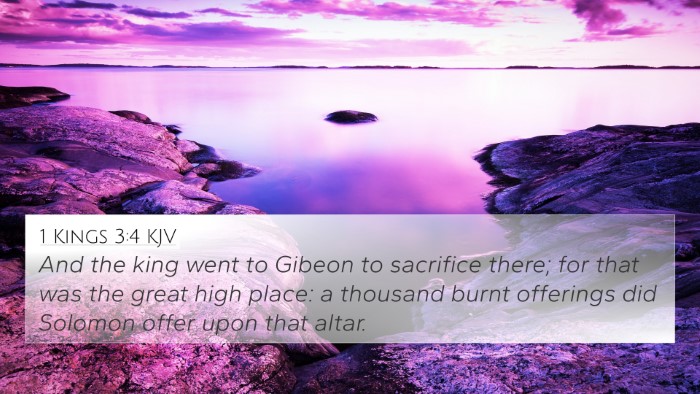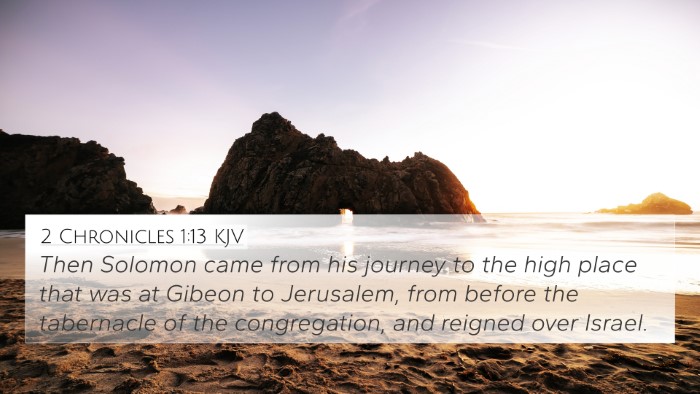Understanding 1 Chronicles 21:29
Verse: 1 Chronicles 21:29 - "But the tabernacle of the Lord, which Moses made in the wilderness, and the altar of the burnt offering, were at that season in the high place at Gibeon."
Summary of the Verse
This verse highlights the significance of sacred spaces and their historical context within the Israelite worship practices. It points to the tabernacle established during the Exodus and a critical moment in Israel’s history. The mention of Gibeon indicates a shift in centralized worship as the nation transitioned from tent to temple worship.
Commentary Insights
-
Matthew Henry:
Henry emphasizes the importance of the tabernacle and the altar as symbols of God’s presence among His people. He notes that despite the future establishment of the Temple in Jerusalem, the site of worship at Gibeon held historical and spiritual significance. It serves as a reminder of God's continuous covenant with Israel and the practice of sacrifices and offerings to maintain divine favor.
-
Albert Barnes:
Barnes points out that the mention of Moses' tabernacle points to a long-standing tradition of worship. He highlights the transition from temporary structures to a more permanent worship system under Solomon, illustrating the evolving nature of religious practices in ancient Israel and the significance of these locations to their identity as God’s chosen people.
-
Adam Clarke:
Clarke provides a theological depth to the verse by linking it to the idea of God's provision and guidance through the wilderness. He reflects on how Gibeon became a central place for worship due to its historical relevance, establishing continuity in how the Israelites revered God in diverse locations throughout their journey.
Connections between Bible Verses
This verse can be cross-referenced with several key biblical passages that enhance its understanding and contextual significance.
-
Exodus 25:8-9:
Describes the command for Moses to construct the tabernacle as a dwelling place for God among His people.
-
1 Kings 3:4:
Mentions the great high place at Gibeon, where Solomon offered sacrifices before asking God for wisdom.
-
2 Chronicles 1:3:
Also notes that the tabernacle and altar were in Gibeon, linking the worship practices from Chronicles with those noted in Kings.
-
Hebrews 9:24:
Speaks about the heavenly sanctuary, drawing a contrast between the earthly altar at Gibeon and the eternal place of worship.
-
Genesis 12:6:
References the land of Canaan where Abraham built altars, relating the continuity of sacrificial practices.
-
Leviticus 1:1-9:
Details the offerings made at the altar, showing the ongoing practice of sacrifice that was central to Israel's worship.
-
Matthew 5:23-24:
Jesus references bringing gifts to the altar, further emphasizing the importance of reconciling with others before worship.
-
Acts 7:44-47:
Discusses the tabernacle of testimony, paralleling it with Solomon's temple and emphasizing the historical worship setup.
-
Psalm 84:1:
Reflects on the beauty of dwelling in God’s presence, which is what the tabernacle at Gibeon represented.
-
John 4:20-24:
Jesus teaches about true worshippers who worship in spirit and truth, connecting to the significance of places of worship throughout history.
Conclusion
1 Chronicles 21:29 serves as a critical reminder of the historical context of worship practices and how they evolved within the Israelite community. By understanding this verse and its connections to other biblical texts, readers can gain a deeper insight into the significance of sacred spaces and the continuity of God’s covenant with His people.
Additional Study Tools
For those looking to further explore biblical scriptures, utilizing tools for Bible cross-referencing can enhance your study:
- Bible Concordance: A helpful tool for finding specific words and their occurrences throughout the Bible.
- Bible Cross-Reference Guide: A resource that lists connected verses to ease personal study.
- Cross-Reference Bible Study: Methods for connecting themes across various biblical texts.
- Bible Reference Resources: Collections of verses and their relationships for deeper understanding.
- Bible Chain References: A study method that provides links between specific verses across the scripture.
